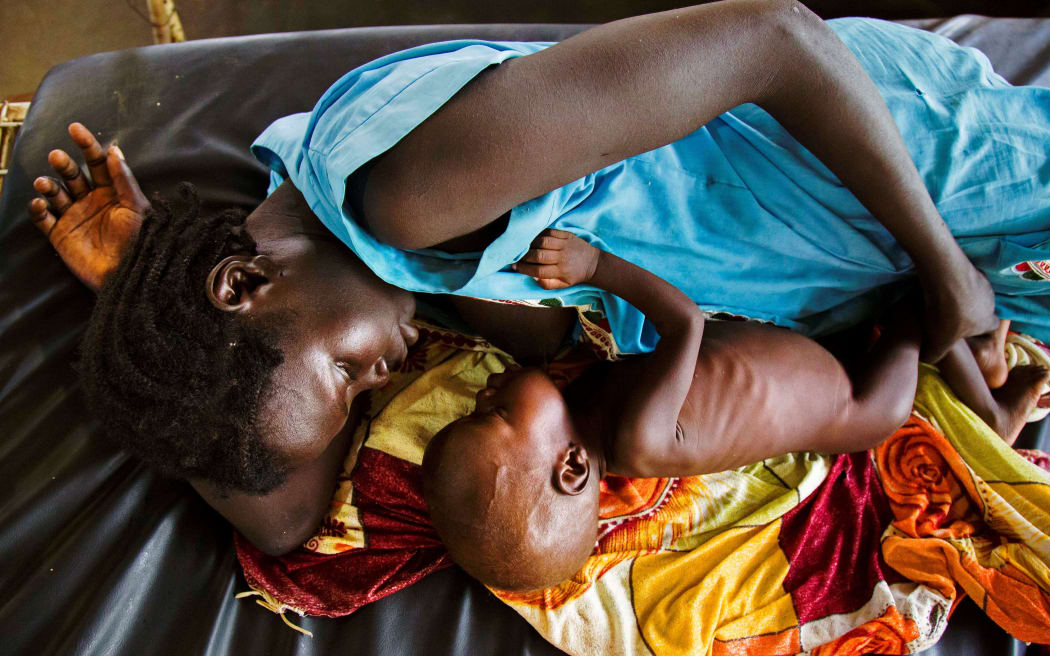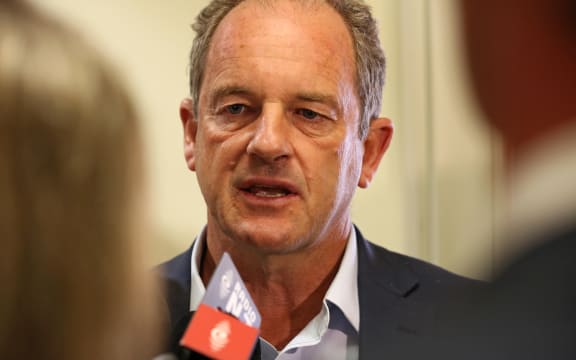The famine in South Sudan is a man-made disaster and a ceasefire is urgently needed, former Labour leader David Shearer has told the UN Security Council.

A mother and her malnourished child in South Sudan in November 2016 (file) Photo: AFP
In his first briefing in his new role as the head of the UN's South Sudan mission, Mr Shearer warned the conflict had intensified over the last few months and opposition groups and the government were planning upcoming offensives.
He took over the position earlier this year, and has been tasked with helping the world's newest nation - which has been embroiled in a three-year civil war.

David Shearer Photo: RNZ / Alexander Robertson
The Security Council has considered an arms embargo on the country, but has so far been unable to agree whether it would help reduce the violence.
Mr Shearer told Morning Report the humanitarian situation had deteriorated and the South Sudanese were struggling to survive.
"The humanitarian consequences of the violence has been disastrous. Currently one third of South Sudan's population is either displaced or refugees. This is a man-made disaster unlike other countries in the region that are experiencing famine brought about by drought.
"They have exhausted their coping mechanisms."
No side seemed willing to commit to the peace agreement, he said.
"Despite what appears to be attempts by the parties to achieve victory by military means, a political solution is the only way forward for South Sudan.
"Military offensives are fracturing groups and intensifying ethnic divisions to a degree which will hinder reconciliation. Regrettably no party has shown interest in reviving the peace agreement."
Mr Shearer earlier told United Nations Radio unanimous support was needed to help the UN South Sudan mission, which is known as UNMISS.
"The council and particularly the neighbouring countries around South Sudan have to be in lockstep. There can't be various differing voices. There has to be collected determination to move and put pressure on the various parties to move to that political process. That is the most significant issue that I will be raising with the council."
The political process in South Sudan was not dead, but required "significant resuscitation", he said.
"We are here as the UN to help facilitate that, to create the opportunities, to provide the logistics, everything that needs to happen. But first of all we need to make sure that that solidarity with the people of South Sudan, and that unity, is there. Without that we're not going to be able to move forward in the way that we all want to."
With 12,000 UNMISS peacekeepers, 2000 police and 17 UN bases in the country, the UN's mission to the South Sudan was providing an incredibly important protection service to many of the locals, Mr Shearer said.
"In many cases we have had people - civilians - come to our bases in search of protection. And we have accommodated those people, sometimes inside our bases, but more often to one side of the bases.
"I have no doubt in my mind that if it weren't for the UNMISS and the UN's presence in the South Sudan today, tens... hundreds of thousands of people would not be alive."

